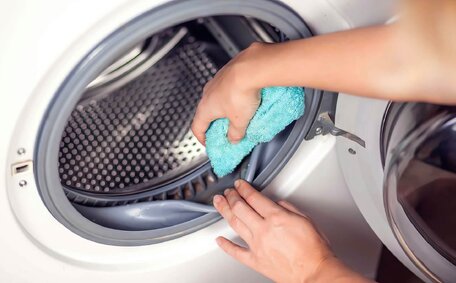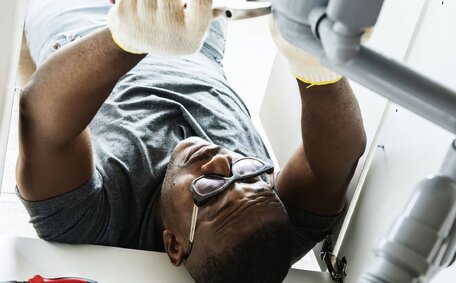Key factors when choosing a gas hot water system
When selecting a new gas hot water system, there are several key factors to consider:
Fuel Type
The different types of main fuel for gas systems are natural gas and LPG. Natural gas can result in long-term cost savings. LPG offers flexibility with bottled gas when natural gas isn’t available.
Energy Efficiency Rating
Aim for a 5-6 star energy rating. A higher energy rating equates to greater efficiency.
Heat pump water heaters can be up to 80% more efficient compared to traditional electric or gas storage water heaters.
Size
Select a water heater appropriately sized for your household’s water heating needs. Select a model based on daily hot water demand and the number of people in your household to avoid running out when multiple outlets are in use simultaneously.
System Type
Consider the technology of continuous flow hot water or water storage tank systems. Continuous flow water heater systems heat water on demand, while storage tanks hold a volume of pre-heated water. Each have their own pros cons to carefully consider.
Professional advice is invaluable in determining the most suitable water system for your home.
Fuel type and energy efficiency considerations
When it comes to fuel types, water heating systems such as gas hot water units have two main options:
Natural Gas
Gas hot water systems, particularly those with solar options, tend to be more cost-effective than other fuels. Natural gas prices tend to be lower than LPG. Natural gas, supplied through existing pipelines, presents a convenient fuel source if connected to your home.
LPG
LPG, a tank system alternative, offers flexibility without needing a mains connection. However, the cost of replacing and refilling bottled LPG can accumulate over time. Furthermore, LPG generally incurs higher per-unit energy costs than natural gas.
In terms of energy efficiency, when installing a new hot water system it’s recommended to choose a high rating 5-6 star energy efficient model.
A higher energy star rating denotes a hot water system that is both efficient and cost-effective, while also being more environmentally friendly.
Solar hot water systems with solar-boosted features and heat pump systems currently lead the market in energy efficiency.
- Solar water heater systems use at least 60% less energy than conventional electric or gas systems. And they harness the free, renewable solar water energy from sunlight to heat your water.
- Heat pump systems achieve higher energy efficiency because they move heat rather than generating it. This makes them up to 80% more efficient than conventional systems. When integrated with solar panels, heat pump systems provide enhanced environmental benefits by reducing reliance on gas or grid electricity.
Comparing storage vs instantaneous systems
When it comes to assessing options, when comes to types water systems for gas, there are two main options:
Storage Tank Systems
Storage tank hot water systems heat a set volume within an insulated tank and are also known as conventional hot water heaters. These are suitable for homes with regular water use, allowing for swift reheating and successive use.
However, they can waste energy by maintaining a constant minimum water temperature. Good insulation in a tank minimises this standby energy loss.
Instantaneous/Continuous Flow Systems
Instantaneous systems heat cold water on demand using a heat exchanger, eliminating the need for a storage tank.
These systems heat water as needed without standby losses, making them efficient for homes with intermittent water usage. However, if used frequently for small amounts, on-demand systems may not reach optimal operating temperatures, reducing their energy efficiency.
Choosing the most efficient hot water system—storage tank or instantaneous—depends on your household’s water usage and needs.
Installation and running costs
When it comes to installation and running costs, we acknowledge that gas hot water systems vary:
Upfront Costs
The installation cost for a basic natural gas storage tank system ranges from $1,000 to $2,000. Advanced electric hot water systems like storage and heat pumps may have installation costs ranging from $2,000 to $4,000.
Operating Costs
Ongoing running costs that will reflect on your energy bills depend on the system’s efficiency rating, fuel type, and household usage patterns. But as a guide:
- A 5 star storage electric hot water system costs about $300 annually to run
- Among the efficient pump hot water systems, a 5 star model with continuous flow technology costs about $270 annually
- By comparison, a pump hot water system powered by solar electricity would cost around $150-200 per year
As heat pumps utilise renewable energy and emit minimal greenhouse gas emissions, choosing these systems can help you save money, approximately $150 per year compared to gas, while reducing environmental impact.
Calculating the right size for your household
When determining what size gas hot water system to install, it’s important to consider the number of people in your household and your expected daily hot water usage.
As a general guideline, it’s recommended to allow:
- 50-80 litres per person per day for homes with efficient showerheads and taps
- 80-100 litres per person per day for homes without water-efficient fixtures
For instance, a 4-person household without efficient fixtures requires a system that can handle 320 to 400 litres daily. An appropriately size hot water system with a storage tank would be around 400 litres.
It’s best to oversize your system slightly to account for future demand increases. Undersizing your hot water system can lead to running out during peak times.
A plumbing professional can assess the correct size for your hot water system based on a thorough site inspection and usage evaluation.
Top gas hot water system brands
When it comes to reliable gas hot water system brands, some top options to consider include, where you can find more details:
Rheem
Rheem, a top Australian brand, is noted for its robust and reliable gas storage hot water systems. Their gas storage and continuous flow models come with up to 15 years on the water tank heat exchanger and 5 years on parts. Rheem offers good warranty coverage and responsive after-sales support.
Rinnai
Known for their sleek tankless flow gas systems, Rinnai offers both quality manufacturing and technology innovations. Rinnai’s standout features include exact temperature control electronically and frost protection for colder regions. They offer 12 year warranties on heat exchangers.
Dux
Dux, an established Australian brand, manufactures gas hot water units notable for their high energy efficiency ratings. Storage and instantaneous models come with warranties extending more than 12 years, plus they have a strong reputation for reliable post-installation service.
Bosch
For high-end quality, the best gas hot water solutions come from German engineering brand Bosch, which delivers both continuous gas systems and heat pump models pairing solar electricity with great energy savings. Bosch offers warranties of up to 10 years, complemented by extensive after-sales support.
When comparing gas hot water brands, look at reliability, warranty terms, efficiency, features, after-sales support, and overall value for money based on your household’s needs.
Maintenance tips and warranty info
To keep your gas hot water system running efficiently and maximise its lifespan, regular maintenance is important.
Maintenance Tips
- Inspect the pressure relief valve once every 6 months by lifting the lever. Replace the valve if it leaks or discharges.
- Annually flush the system with a hose to eliminate mineral deposits, remembering to switch off the power first.
- Ensure roof vents are clear of plants or debris to maintain adequate ventilation.
- Regularly check for leakage or corrosion and arrange immediate repairs.
Warranty Info
Gas hot water systems typically feature warranties of over 5 years on parts and 10-15 years for heat exchangers, covering manufacturing and workmanship defects. For coverage:
- Opt for professional installation by a licenced and insured gasfitter/plumber.
- Service the system annually per the manufacturer’s instructions.
- Ensure to register your warranty with the manufacturer using the proof of purchase.
Understanding the terms of your unit’s warranty gives you peace of mind that any early issues will be promptly rectified by the manufacturer.





